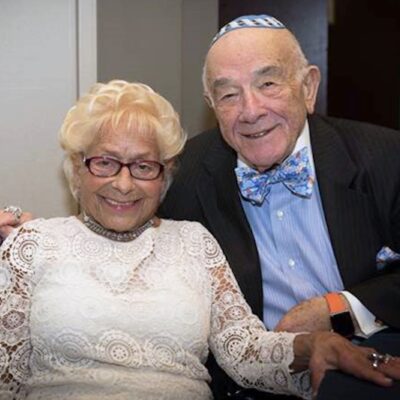Thanksgiving – The Power of Noticing

By Michael Berger
For those in school, holidays set the rhythm of the year, from the programming and study in the weeks before to the actual vacation days off. Living as they do according to two calendars, Jewish day schools jump between Jewish and secular holidays, seamlessly enacting the dual identity of our students and families as Jews and as Americans or Canadians. After the chagim of Tishrei, we in North America turn to the next major holiday – Thanksgiving.
Although Thanksgiving is typically classified as a ‘secular’ holiday, we intuitively sense that it belongs to “both sides” of Jewish day schools. After all, gratitude is both an ethical good – we are taught to say “thank you” as soon as we learn to speak – as well as a religious imperative – we recite “modeh/modah ani” upon waking and say “nodeh lekha” (“we thank You”) in Birkat ha-mazon after food. Indeed, Saadia Gaon (10th c. Babylonia) wrote in his “Book of Beliefs and Opinions,” that the ultimate foundation of mitzvot was rational in that most are expressions of gratitude to the divine creator.
In spite of its universality, the notion of gratitude in each culture may have some nuances that are worth noting. In our everyday lives, saying “thank you” is considered common courtesy – you have done something for me, and I ‘pay’ for it with a thank you. It’s quasi-transactional, a reflexive quid pro quo: if our children ask for or receive anything, we teach them from a young age to say “please” and “thank you” automatically, without any thought. Focused on the self – I am doing the thanking – it discharges a debt, taking the gift or gesture as a given.
In the Jewish tradition, however, thanking – hodayah – comes from the very same root as admission – hoda’ah – or confession. Intrinsic to thanking is acknowledging that the other’s generosity drove the gift just given, not my right or entitlement. The person who is thanked is at the center of Jewish gratitude; I notice his or her kindness and admit – “confess” – how it exceeds what I deserve.
Thanksgiving in a Jewish day school should thus be about much more than mere courtesy. Of course, we should thank our teachers and administrators for all that we see them do, day-to-day, in the trenches. But in the spirit of our tradition, I would like to suggest that the run-up to Thanksgiving should also include noticing the many extraordinary things that go on in our schools by people we typically don’t notice, and which exceed what we expect and deserve:
- the many unnoticed things teachers do, when they go above and beyond to help students who may be struggling, or who are looking for an additional challenge;
- the custodians who, working before or after school hours, make sure our facilities are in an ideal condition that ensures safety and promotes learning;
- the back-office staff who deal with technical, financial and communication minutiae every day, in a climate that increasingly expects instantaneous response;
- the parent volunteers who come in to help in so many ways, throughout the school day and on nights and weekends, that contributes to the prevalent feeling of ‘family’ in our schools.
- the many donors, and especially of the smaller gifts, who ensure our schools function, pay their bills and remain open for all students;
- last, but not least, the lay leaders, and especially the board chair or president, who dedicate hundreds of personal hours to ensure that their schools have the financial and human resources to enact their mission, and that their schools operate properly and sustainably.
We who work in schools need to notice the many behind-the-scenes individuals who, in many untold ways, give so generously. Rather than consigning acknowledgement to a designated few, let’s find ways to help everyone, and especially our students, notice and appreciate what others do to make our schools work. This is one of the most important things we can do in educating them Jewishly.
It’s true that in some private schools in this country, there is a mood of entitlement by the students and families; for the tuition paid, they expect and demand a highly personalized, first-class education that serves their child’s interests. (See the bold 2017 letter by Trinity’s headmaster, John Allman, on precisely this point.) But Jewish day schools aspire to pass on the time-honored traditions of our faith and our people, and that includes “Thanks-giving” – or shall we say “thanks-noticing” – in a Jewish way.
For the last 25 years, the AVI CHAI Foundation has invested in many of these groups, “noticing” the hard work of teachers, leaders, staff, donors and board members, and creating varied programs that improve their skills and build their capacity. On this Thanksgiving, we want to invite the entire day school community to join us in thanking each and every one of them, in committing ourselves to notice their dedication, and acknowledge that their generosity far exceeds what we deserve.
The Jewish people, and its future, are in good hands. Let’s notice it.
Dr. Michael S. Berger is Program Officer at AVI CHAI North America.













